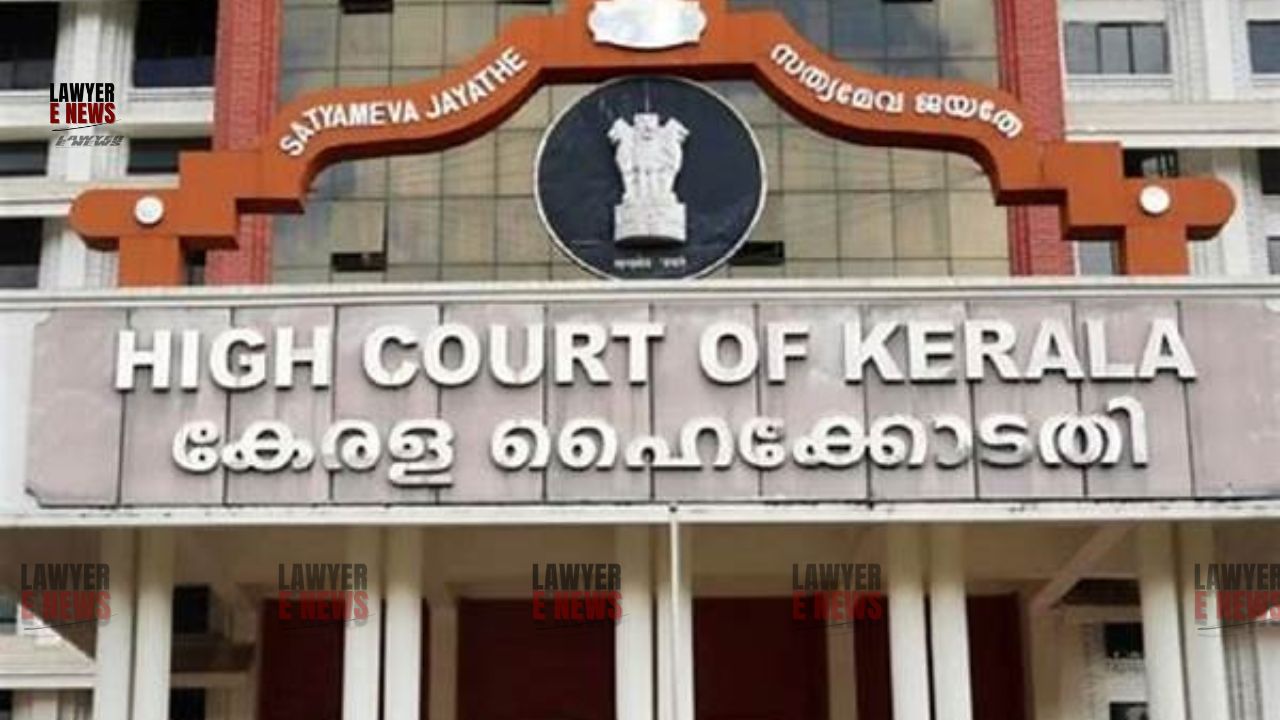-
by Admin
18 February 2026 4:37 AM



“It is not incumbent upon the landlord to disclose in his pleadings the availability of other vacant buildings in his possession.” - In a significant judgment Kerala High Court allowed an eviction plea under Section 11(3) of the Kerala Buildings (Lease and Rent Control) Act, 1965, reversing concurrent findings of the Rent Control Court and the Appellate Authority. The Division Bench of Justice A. Muhamed Mustaque and Justice P. Krishna Kumar held that the tenant failed to discharge the statutory burden under the first proviso to Section 11(3), which mandates that the tenant must specifically plead and prove the existence of vacant alternative premises in the landlord’s possession.
“The burden of proof under the first proviso to Section 11(3) lies solely with the tenant, unless the landlord admits otherwise.”
The landlord, T.V. Babu, sought eviction of the tenant, Beena K.P., from a shop room rented in 2006, on the ground of bona fide requirement for his son to start a computer business. While both the Rent Control Court and the Appellate Authority found the need to be genuine, they rejected the petition on the ground that the landlord owned several other rooms in the same shopping complex and failed to show “special reasons” for requiring the specific tenanted premises.
The landlord challenged this rejection through a revision petition before the High Court.
The High Court was categorical in holding that the concurrent decisions below were vitiated by a misdirection of law regarding burden of proof under Section 11(3). It observed: “The burden of proof of establishing the basic elements of the first proviso to Section 11(3) of the Act is indisputably upon the tenant.”
The Court relied extensively on its prior rulings in Kakkottakath Puthiyapurayil Muhammad Ali v. Kakkottakath Puthiyarambath Mahamood (2022 (4) KLT 221), Dineshan Pillai P.B. v. Joseph (2019 (3) KHC 206), and Vasantha Mallan v. N.S. Aboobacker Siddique (2020 (1) KHC 21) to reinforce the principle that: “It is obligatory on the part of the tenant to plead and prove the identity of the vacant buildings in the possession of the landlord.”
“Non-disclosure of vacant premises cannot be picked up as a reason to doubt the bona fides of the landlord's claim.”
The Court criticised the lower courts for wrongly shifting the burden onto the landlord, noting that: “The entire enquiry conducted by the Rent Control Court was under the assumption that it was the burden of the landlord to prove that there were no vacant rooms.”
The Court noted with disapproval that the Rent Control Court placed reliance on a building register extract to infer the existence of other rooms in the landlord's possession. It clarified: “Mere production of a record from the local authority does not relieve the burden of the tenant… What is required to be proved is the physical existence of a vacant building.”
Further, it observed: “Even if it is noted in the register that a particular building is in vacant possession of the landlord, that does not amount to proof of actual vacancy and possession.”
On Commissioner’s Report and Admission of Landlord's Wife: While a local commissioner was appointed by the landlord to demonstrate that the other rooms were not vacant, the report was disregarded by the Rent Control Court on technical grounds. The High Court found this rejection unjustified.
Additionally, the tenant had relied on the wife of the landlord admitting the existence of other shop rooms. The Court rejected this reasoning, stating:
“Her statement that rooms were being used for a supermarket and other businesses has no bearing unless it is shown that those rooms were vacant and suited for the same purpose.”
Holding that the tenant had failed to discharge the burden under the first proviso to Section 11(3), the High Court allowed the revision petition and ordered eviction:
“As it is concurrently found that the landlord bona fide needs the vacant possession of the tenanted premises, the eviction petition is only to be allowed.”
To balance equities, the Court granted six months’ time to the tenant to vacate, subject to filing an undertaking and clearing arrears of rent.
Date of Decision: 9th April 2025
